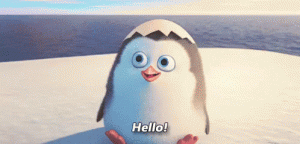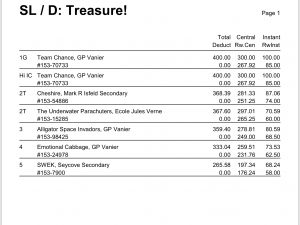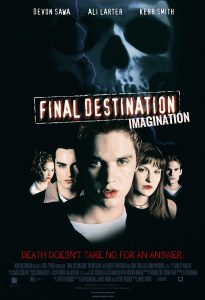Hello, Internet.
So you might remember that a while back we hosted the regional Destination Imagination tournament, in which I took part in the improvisational challenge. Last weekend, it came time for the provincial tournament.
In the gap between regionals and provincials, my team decided to give a lot of focus to learning more about our list of explorers, two of which we would have to integrate into our final improv skit. (The gist of the challenge was this: you’re given two explorers and one “cultural treasure” from a list, and you have to make a skit about the explorers recovering the treasure. The whole thing takes place in an unusual setting which you are also given at the start of the skit. Partway through the skit, you are also given a random setback to incorporate. The only prop you are allowed is a single white bedsheet) Not knowing enough about our explorers was an area where we felt that we really fell short in our first performance, so we wanted to make sure we all really knew who our explorers were.
Our full list of explorers was as follows:
Ann Bancroft , a skier who skied through both the arctic and Antarctic (not to be confused with Anne Bancroft, the actress from The Graduate)
Jacques Cousteau , the coinventor of the aqualung.
Captain Kidd, a Scottish sailor.
Leif Ericson, the Viking who discovered North America.
Howard Carter , the man who found King Tut’s tomb.
Katherine Johnson , a black woman who was a computer for NASA.
John James Audubon , an ornithologist and the author of Birds of America.
Elon Musk , the CEO of SpaceX and Tesla.
Captain Nemo , the protagonist of Twenty Thousand Leagues Under the Sea.
Ruth Benedict , an American anthropologist.
Blackbeard (Edward Teach), a famous pirate.
Alice, the protagonist of Alice’s Adventures in Wonderland and Through the Looking-Glass and What Alice Found There
Unfortunately, half my team was unable to be there, so despite having prepared more thouroughly for provincials than regionals, we went into our second tournament with significantly less confidence. This turned out to be reasonable, as we ended up coming in fifth place out of five.
This means that we can’t progress to the next round of DI (Globals), so this is our final round of DI for this year.
Now, DI is a good chance to do a lot of critical thinking, and it can be a good way to develop certain skills. I’ve been regularly participating in DI for a few years now, and I always find it to be a challenge, and something that requires lots of work, thinking and effort on the part of the students participating. We looked at a study showing that students who participated in DI were more engaged, better collaborators, more self confident, and more creative (among other things) than those who didn’t, and DI definitely requires you to use skills in all these areas. However, all the attributes mentioned above seem to me like things that people would already have to possess in order to be interested in DI and successfully complete a challenge, and in our case, they seem like attributes necessary to get into PLP.
From my my own experience, I would say a skill that DI helps you (or at least helped me) develop is commitment to and throughout something frustrating or difficult. For instance, the first time I did DI my group struggled to think of ideas for some of the requirements, which were much more specific than we were used to, and we had to work through arguments and a lot of fruitless brainstorming until we eventually worked out an idea.
In fact, the whole “requirements being more specific” thing brings me to another skill that DI helped me develop: reading long, important, confusing, and very specific documents and interpreting the information in a useful way. Reading the rules for our first ever challenge felt a bit like trying to actually read the terms and conditions before using an app or other software, but as I already mentioned, it eventually became important to read and understand them– and we did it. We went through and highlighted important things, moved pages into different apps so we could read smaller sections without it being so overwhelming, made notes paraphrasing important information as we went so we could keep track of it, and basically any other techniques we could think of (using our aforementioned creativity and critical thinking), and we developed a skill that we weren necessarily already strong at.
To summarize, I think the skills that DI helps you build are somewhat misconstrued; sure, it can help develop the skills and attributes you already have as strengths, but what it does more is force you to pick up whatever new skills happen to be necessary to your challenge (for instance, we all learned improv!) by making you commit even when it gets difficult– and that can be extremely important.
Anyway, I won’t make this blog post so long and confusing it feels like reading terms and conditions.
Toodles.



